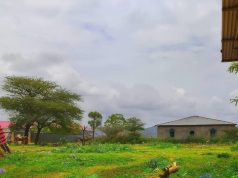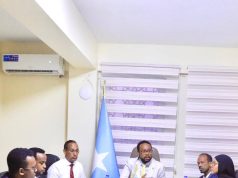“I woke up really early in the morning, I couldn’t sleep because I was so excited, it was like Christmas,” recalls Hoda Ali. “I went to my mum’s room and asked: ‘Is it time yet?’. She asked me what I was doing up at 6am and told me to go back to bed. I remember going to bed and just waiting.” But Ms Ali, who was then just seven years old, was not waiting for presents. She was waiting to undergo female genital mutilation (FGM).
Practiced on an estimated 98 per cent of girls in Somalia at the time, she had grown up to view it as a rite of passage shared with her friends and family. The night before Ms Ali and her younger sister were due to undergo the procedure, their family had thrown a party at their home in Mogadishu and given them gifts. “There are certain parts of the world where they don’t tell girls what they’re going through but in Somalia nobody hid it from us,” Ms Ali tells The Independent. “I would come home from school and say to my mum: ‘When is my time? Because I need this so I can be like my friends.’”
Ms Ali’s mother arranged for a traditional “cutter” to come to the family home to perform FGM on her two daughters, and even paid extra for local anaesthetic. “This woman came in, she was wearing black head to toe,” Ms Ali remembers. “The first thing she said to me was: ‘Hoda, you’re the oldest, you know your sister is going to go first.’ “She said: ‘Make sure you don’t cry, make sure you don’t scare her, make sure you’re strong for her’, and then she left and went into our room.” She described the woman putting a cloth down on the floor before two of her aunties held her six-year-old sister down and the FGM started.
“She had a needle and a syringe, she administered the local anaesthetic and then she cut. My sister was crying and screaming, I was crying too and I had my hand over my mouth. I was very frightened. But when I went in, I did what the woman said. I lay down on the floor – I didn’t move, I didn’t scream. “The real pain only started when the local anaesthetic wore off.” Ms Ali’s legs were bound together from hip to ankle and she was confined to her bed for two weeks, before the cutter came back to check on her work. “If a stitch was out of place they would do it again,” she adds. “The whole point is for a husband to force himself and prove the woman is a virgin. When women give birth, it’s very dangerous. Then they are stitched up again exactly the same, it happened to my sister four times.”
Ms Ali had undergone type three FGM, one of the most severe types of non-medical procedures that are practiced on girls across parts of Africa, Asia,and the Middle East. Afterwards, she felt she was finally “fitting in” with a society where it is “taboo” to talk about FGM or the pain it caused. But when Ms Ali turned 11, she fell seriously ill. It was 1991 and the Somali civil war had started the week before. Her parents took her to a hospital run by an Italian charity, where doctors discovered, what they believed, a cyst formed by an accumulation of menstrual blood that had been unable to escape.







